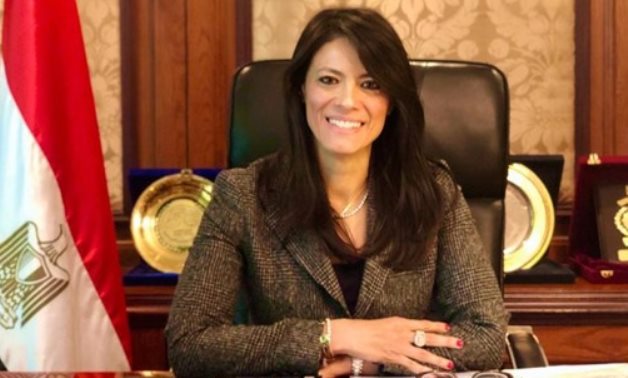
Minister of International Cooperation Rania Al-Mashat - Press Photo
CAIRO - 2 June 2022: Minister of International Cooperation Rania A. Al-Mashat participated in a roundtable on “Financing the Industry Transformation”, within the framework of the preparatory activities for the “Stockholm +50”, organized by the United Nations General Assembly in Sweden.
This falls within the context of strengthening international efforts to preserve the climate and environment, and to push for multilateral cooperation in financing the green transition and in stimulating urgent climate action.
The session aimed to discuss strengthening public-private partnerships in achieving the industry transformation, and in reducing harmful emissions. Among the key points was also the role of international financial institutions (IFIs) in supporting climate action and in facing industry challenges in developing and emerging countries, and the role of the international community.
Al-Mashat said that such events are of paramount importance in enhancing joint cooperation and in exchanging expertise and knowledge on development efforts, noting that Egypt’s presidency of COP27 will represent an important gathering of the international community to push towards climate challenges.
Al-Mashat added that Egypt has already launched the National Climate Change Strategy 2050, and is moving forward towards strengthening climate action at the local level. Through its presidency of the COP27, Egypt will work to advance international efforts as well, said Al-Mashat, explaining that IFIs have a pivotal role in stimulating climate action, and in encouraging private sector participation in development.
The Minister stated that development financing, de-risking, and innovative financing tools are a catalyst for mobilizing private sector investments and providing funds to bridge the financing gap; calling on the international community and IFIs to stimulate such tools.
Al-Mashat explained that multilateral cooperation is also necessary, not only to provide financing, but also for technical cooperation, exchange of experiences, and building capacities to address climate change.
Al-Mashat added that with less than a decade left to 2030, it is crucial to confront climate change by transforming global pledges and commitments into implementation, as expressed by COP26 and the Paris Climate Agreement. However, it is important to note that there is a gap in climate finance amounting to about $632 billion in 2019/2020, which is less than the required annual financing estimated at $4 trillion according to the World Economic Forum. Developing countries need additional annual investments of $800 million for mitigation projects by 2050, which is far greater than the international pledges.
This session included the participation of the CEO of the Climate Investment Funds, Mafalda Duarte, the Organization for Economic Co-operation and Development’s (OECD) Kumi Kitamori, and several representatives from governments, private sector and IFIs.
Hosted by Sweden, the conference takes place 50 years after the 1972 United Nations Conference, aiming to serve as a starting point for accelerating the implementation of the United Nations Decade of Action to implement the 2030 SDGs, the Paris Climate Agreement, and the post-2020 global Biodiversity Framework; encouraging the green recovery post-pandemic.
Comments
Leave a Comment